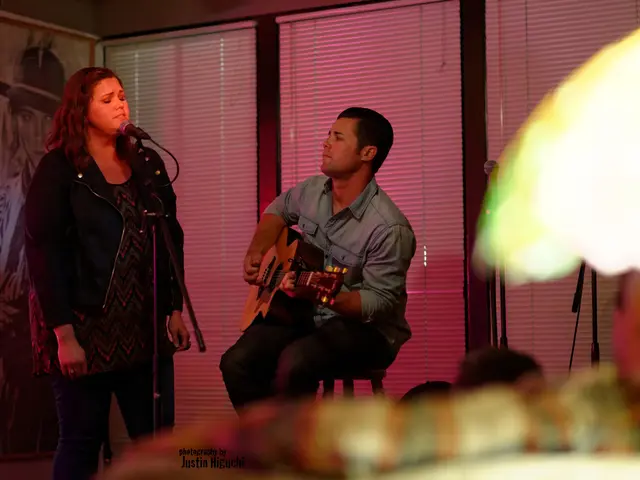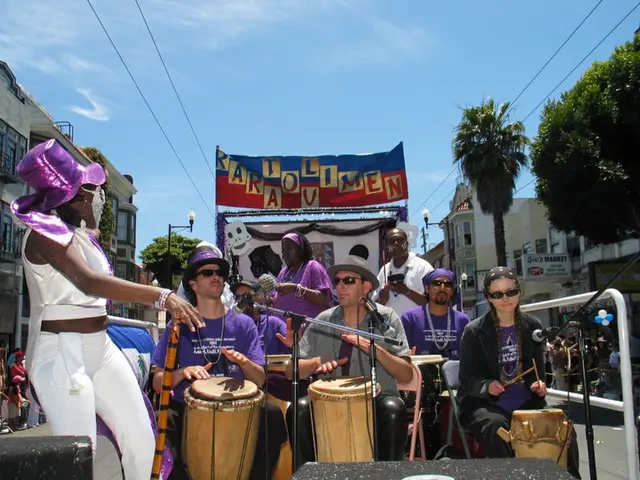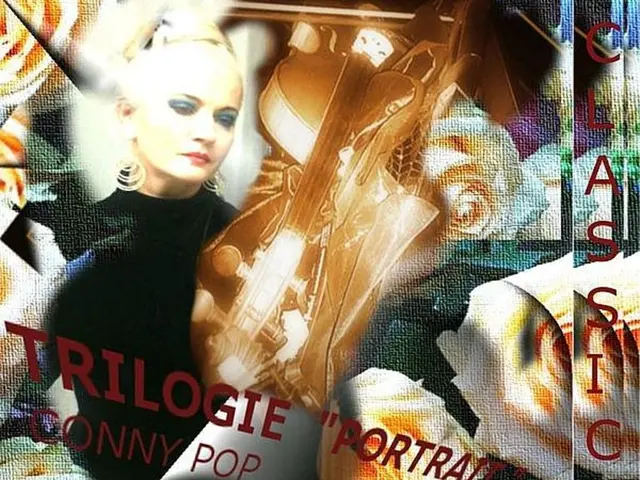Contentious Clash Over Fruits: Detailed Legal Dispute between Apple Corps and Apple Computer
Vibrant Tales from the Tech & Music World: The Unending Symphony of Apple Corps vs. Apple Inc.
Join us as we delve into one of the most riveting narratives in the tech and music industries—the prolonged legal battle between Apple Corps, the multimedia powerhouse of The Beatles, and Apple Inc. over the usage of the iconic "Apple" trademark.
Created in Harmony: Apple Corps' Genesis
In 1968, at the apex of The Beatles' creative reign, Apple Corps was born. This entity transcended the realms of a typical record label, embodying an ambitious vision that encompassed music, film, fashion, and grander endeavors. The Granny Smith apple logo was a beacon of innovation, heralding a new era in both music and business.
The Apple Accord (1981): A Natural Harmony
With the technological and musical revolution of the '80s underway, Apple Corps and the emerging Apple Computer entered a union in 1981. This formal agreement defined each Apple's use of the "Apple" trademark, aiming to create harmony in their coexistence. Apple Computer vowed to abstain from the music business, while Apple Corps steered clear of the computer realm.
However, this harmonious partnership was soon disrupted.
A Cacophony of Clash (1984–1989): Technology Shakes the Tune
As technology advanced, the '80s witnessed Apple Computer's introduction of the Macintosh. At the same time, the Musical Instrument Digital Interface (MIDI) significantly transformed the music industry. This inadvertent overlap triggered a discord—Apple Corps accused Apple Computer of breaching the 1981 settlement with the Macintosh's sound capabilities.
And so, the mesmerizing legal battle of Apple Corps vs. Apple Computer began.
Legal Overture (1991): The MIDI Melee in Court
In 1991, the case made its way to the High Court in London. The central question was whether Apple Computer's technological advancements and association with the emerging MIDI standard violated the original settlement. The court sided with Apple Computer, asserting that the Macintosh's primary function was still data processing, not music creation.
However, the duets of these Apples were far from over.
Reconciliation (1991): Harmonizing the Struggle
Following the court ruling, the two Apples reconnected, composing a revised settlement that catered to the evolving technological landscape. This agreement acknowledged the ever-changing dynamics and stipulated that Apple Computer could use the Apple logo for computers, data processing, and telecommunications, barring music products. Apple Computer reportedly compensated Apple Corps around $26.5 million, and this case ultimately ended with Apple Computer agreeing not to sell physical music materials.
Sosumi: A Peculiar Interlude
In the early 1990s, Apple Computer introduced sosumi, a system alert sound for Macintosh computers. Created by Apple employee Jim Reekes, this sound was initially suggested as "Let It Beep," making a pun on The Beatles' iconic song. However, due to legal concerns, the name was changed to "sosumi," purportedly of Japanese origins and having 'nothing to do with music.'
While sosumi no longer holds a prominent role in modern Macintosh computers, it's still present in your computer's sound/audio settings.
Digital Fortissimo: iTunes and the Legal Encore (2003–2007)
With the advent of the digital music revolution, Apple Inc. launched iTunes in 2003, redefining music distribution. Once again, concerns arose at Apple Corps, and a new legal battle erupted in 2003, with Apple Corps accusing Apple Inc. of violating the 1991 agreement. This legal battle persisted for several years, culminating in a confidential settlement in 2007. The terms were undisclosed, but reports hinted at Apple Inc. compensating Apple Corps and taking ownership of the Apple trademark and logos for $500 million.
The Legacy Decided by Chords: Apple Corps vs. Apple Inc.
The tale of Apple Corps vs. Apple Computer is not merely a legal chronicle; it underscores the evolution of technology and the music industry, highlighting the continuous challenges faced in maintaining boundaries in an ever-changing landscape. Despite the legal discord, both Apples have left indelible marks on their respective industries, with Apple Inc. revolutionizing personal computing and music distribution, and Apple Corps preserving and promoting The Beatles' legacy.
The boundary between one company's territory and another's remains a perpetual hurdle in industries marked by rapid innovation. The Beatles' music finally made its way to digital music stores—including iTunes—in 2010.
- In the 1990s, Apple Corps' endeavors extended beyond music to encompass the realm of books, publishing titles that delved into the rich history of The Beatles and the evolution of the music industry.
- During the time of iTunes' dominance in digital music distribution, Apple Inc. increasingly focused on the realm of entertainment, branching out into movies, television shows, and podcasts, presenting a new wave of competition for traditional entertainment giants.








